FOUNDATIONS IN NATURAL NUTRITION
$499.00
NNC Course Code 1.1
Also available in a payment plan, 3 monthly payments of $170.00. Natural Nutrition is much more than what a person eats. This comprehensive evidence-based foundational course provides a detailed and systematic guide to the principles of nutrition from a holistic perspective. It is an essential starting point for the study of Natural Nutrition, reviewing the concepts and science of food and human nutrition and the principles of a natural foods diet as they relate to health and well-being.
Natural Nutrition is much more than what a person eats.
It’s the process of building a relationship with food and living a more natural way of life. It’s the understanding that because no two bodies are exactly alike, no two diets should be alike, either.
Food supplies the building blocks of the human body, and what you consume will be reflected in all aspects of your life—physically, mentally, emotionally, and even spiritually.
This comprehensive evidence-based foundational course provides a detailed and systematic guide to the principles of nutrition from a holistic perspective. It is an essential starting point for the study of Natural Nutrition, reviewing the concepts and science of food and human nutrition and the principles of a natural foods diet as they relate to health and well-being.

FOUNDATIONS IN NATURAL NUTRITION
The Foundations in Natural Nutrition includes 5 texts which cover the following topics:
- An introduction to the principles and philosophy of natural nutrition
- The energy-yielding nutrients and their structure, synthesis, and classifications – carbohydrates, proteins, and lipids
- Calculating macronutrients
- Balancing blood glucose levels
- Added vs. natural sugars
- Gluten and when a gluten-free diet is relevant
- The essential fatty acids, trans fats, and seed oils
- Guidelines for cooking with fats and oils
- Detailed descriptions of each vitamin and mineral, their functions, the foods they are found in, and how they can benefit health
- Other beneficial nutrients and non-nutrients
- Why hydration is so important
- And much more…
Click cover images for a flipbook sample of the texts.
The course also provides protocols for using vitamins and minerals that may help correct health imbalances and a detailed guide to choosing high-quality dietary supplements. This invaluable information provides you with clear guidelines for when it’s appropriate to recommend specific nutrients, as well as dosage ranges and possible contraindications.
As well, we introduce the Holistic Nutrition Hub and assessment tools you can use right away. Students receive free access to the nutrition assessment forms and consulting tools available on the Holistic Nutrition Hub, saving you time and helping easily manage all aspects of working with clients.
Throughout the course are activities, exercises, and quizzes to ensure you thoroughly understand the course content.
Course Outline
The macronutrients (carbohydrates, proteins, and lipids) and micronutrients (vitamins and minerals) are explored in detail: their functions, metabolism, absorption, deficiency symptoms, and association with health and disease. Other naturally occurring compounds in plants and animals that may have beneficial effects on human health are examined, including phytochemicals, zoochemicals, and adaptogens, as well as anti-nutrients (including phytates, oxalates, and tannins), and the importance of water. The course also introduces various assessment tools you can use to streamline your nutrition consulting practice.
Course Objectives
Students will develop a foundational understanding of the science of nutrition, the principles of natural nutrition, and the macronutrients and micronutrients. They will learn the impact of diet and nutrition on the human body and how food can support health. Students will know how to maintain and evaluate a food journal.
Course Outcomes




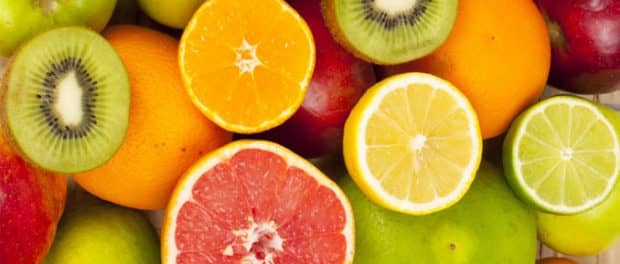
Upon successful completion of this course, the student will have demonstrated the ability to:
- Explain the principles and philosophy of natural nutrition.
- Understand the health risks associated with a modern, processed food diet.
- Use the Food, Mood, and Activity Journal to assess a client’s current diet and eating patterns.
- Use the Nutrition Facts panel to identify specific macronutrients and nutrients and their amount(s) per serving.
- Understand the structures, classification, and importance to human health, energy, and metabolism of each macronutrient, and identify optimal food choices for each.
- Understand how the body digests, metabolizes and uses carbohydrates, protein and lipids.
- Calculate macronutrient ratios specific to a client.
- Identify the differences between soluble and insoluble fibers and understand their benefits to human health.
- Educate clients about how to incorporate specific macronutrients and fibre into their diet.
- Know the differences between whole grains and refined grains.
- Explain what gluten is and identify the food sources of gluten.
- Explain insulin resistance, identify the range of safe blood glucose levels and describe dietary and lifestyle interventions and strategies that may balance blood glucose.
- Understand the differences between natural sugars and added sugars and explain the dangers of added sugars.
- Help a client incorporate specific amounts of protein into their diet based on their individual requirements.
- Explain the various types of fats and lipids.
- Understand the health benefits, sources, and adequate intakes of omega-3 fatty acids.
- Recognize the dangers of trans fatty acids.
- Understand how vegetable oils are processed and identify safe vs. harmful cooking oils.
- Recognize the impact of diet on health and the environment.
- Understand the functions, absorption, deficiency symptoms, causes and effects of deficiency, recommended allowances, dietary sources, supplement guidelines, and clinical applications for each vitamin, mineral, and trace mineral.
COURSE NAME: Foundations in Natural Nutrition
COURSE CODE: Nutrition 1.1
COURSE HOURS: 15
COURSE CREDIT: 1
PREREQUISITES: None
TEXT/OTHER LEARNING RESOURCES:
PDF Textbook
Video(s)
Access to the Holistic Nutrition Hub
All learning materials are provided
ACTIVITIES/ASSIGNMENTS:
- Food, Mood, and Activity Journal – Practice Page
- Research Ingredients – Assignment
- Getting Set Up On the HNH Consulting Platform
- Food, Mood, and Activity Journal Assessment
- Macro-calculator Assignment
- Vitamin & Mineral Assessment
- Nutrient Recommendation Tool
EVALUATION/GRADING:
Pass Mark: 80%
Quiz: 80%
Participation: 20%
TOTAL: 100%


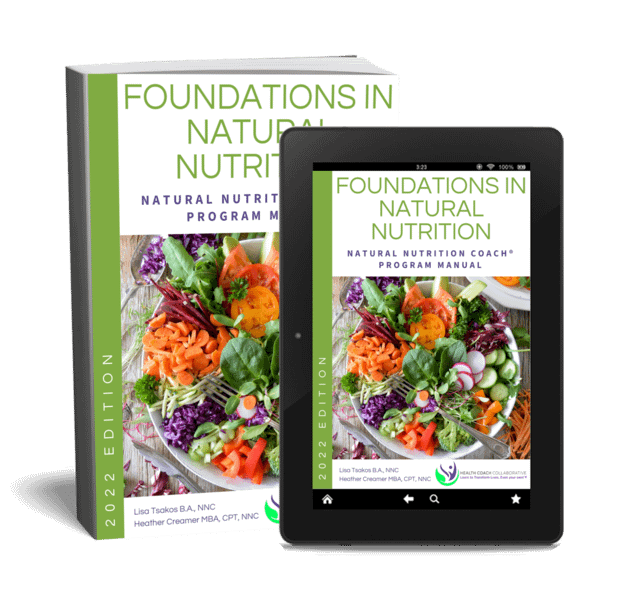
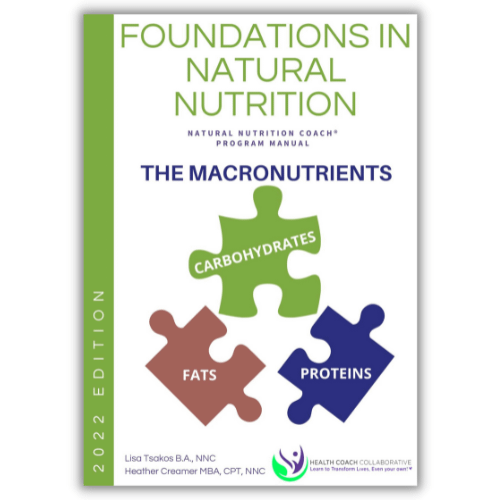
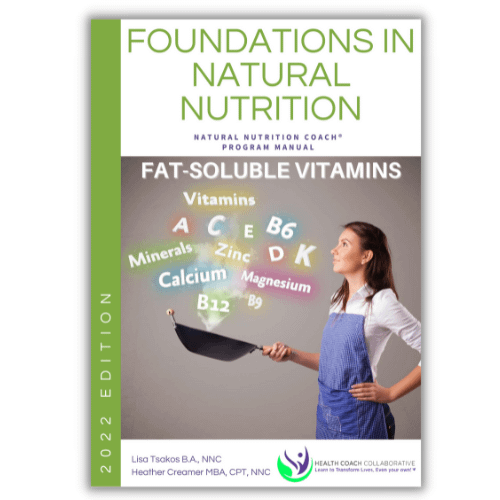
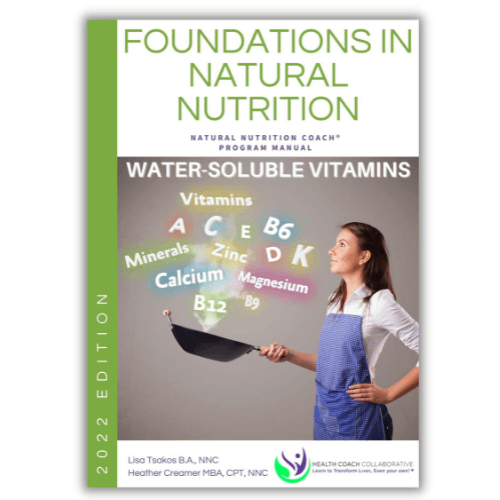
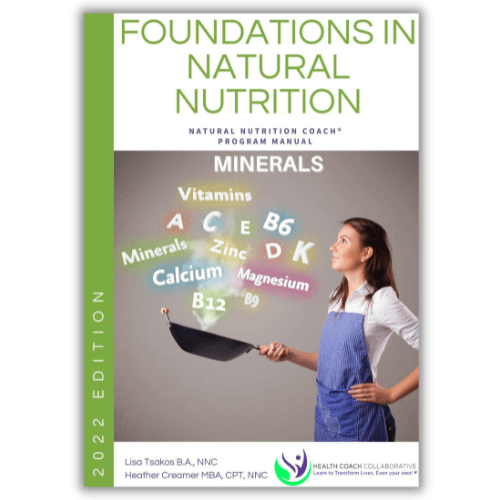
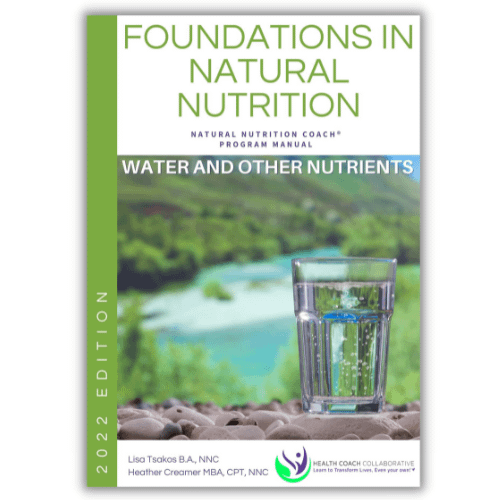
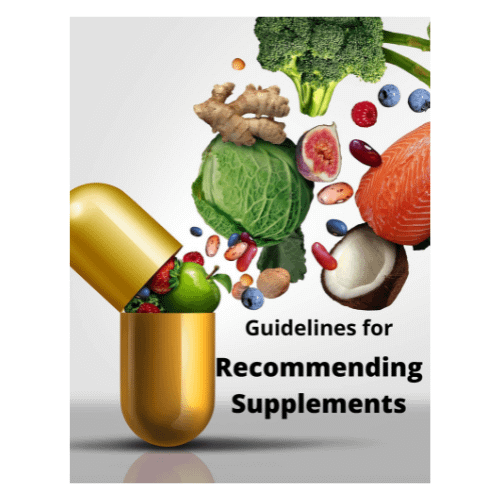
Reviews
There are no reviews yet.